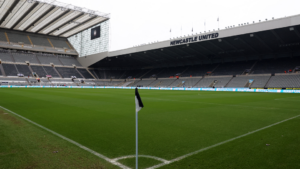
The Chicago Bears are at a pivotal juncture regarding their future home, weighing the prospects of relocating to Arlington Heights against constructing a domed stadium on Chicago’s lakefront. This decision carries significant implications for the team’s legacy, fan engagement, and the economic landscape of the region.
Arlington Heights: A Suburban Vision
In 2021, the Bears purchased the 326-acre Arlington International Racecourse property for $197.2 million, envisioning a state-of-the-art, enclosed stadium surrounded by a mixed-use entertainment district. The proposed development includes restaurants, hotels, office spaces, and parks, aiming to create a year-round destination. Economic projections estimate the project could generate over 48,000 construction jobs and 9,750 permanent positions, contributing approximately $1.4 billion annually to the local economy .
However, the Arlington Heights plan faces challenges. Local officials from neighboring suburbs like Palatine and Rolling Meadows have expressed concerns about potential taxpayer burdens, particularly regarding infrastructure costs estimated to exceed $1 billion . Additionally, the Bears are seeking public funding for parts of the development, which has sparked debate among residents and lawmakers.
Lakefront Proposal: Staying in the City
Alternatively, the Bears have considered constructing a new domed stadium on Chicago’s lakefront, adjacent to the current Soldier Field. This proposal includes a 65,000-seat stadium with a translucent roof, designed to host major events like the Super Bowl and NCAA Final Four. Mayor Brandon Johnson supports the plan, viewing it as a means to retain the team within city limits and boost tourism.
Despite its appeal, the lakefront project encounters significant hurdles. Securing public funding remains a contentious issue, with Governor JB Pritzker and state legislators expressing reluctance to allocate state resources. Moreover, advocacy groups like Friends of the Parks oppose the development, citing concerns over preserving public access to the lakefront .
Navigating the Future
The Bears’ lease at Soldier Field extends through 2033, but the team has the option to terminate early by paying a penalty. As discussions continue, the organization must balance financial feasibility, fan accessibility, and community impact. The decision will not only shape the team’s trajectory but also influence the economic and cultural fabric of the Chicago metropolitan area.
In the coming months, the Bears are expected to engage with stakeholders, conduct feasibility studies, and refine their proposals. Whether they choose the suburban expanse of Arlington Heights or the historic allure of Chicago’s lakefront, the outcome will mark a significant chapter in the franchise’s storied history.







